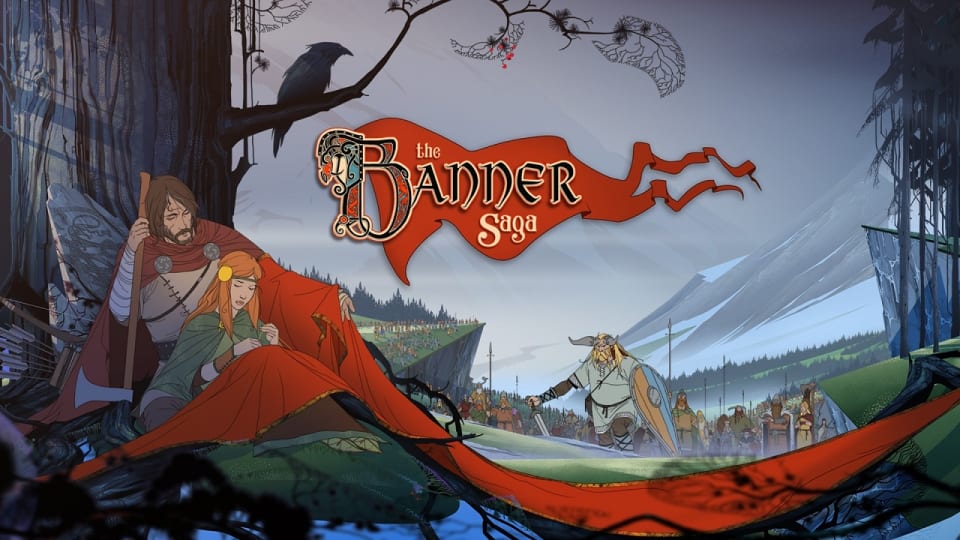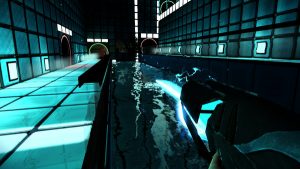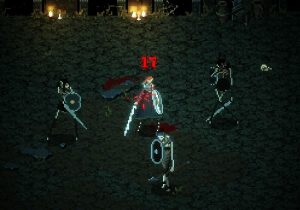*Warning this interview contains spoilers for The Banner Saga*
Reviewers generally agreed that The Banner Saga, released in January 2014 and developed by Stoic, did an amazing job of bringing a Viking inspired setting, incredible soundtrack and hand-created animation to life.
The Banner Saga is no easy journey because catastrophe is as much a part of the landscape as the unique and appealing scenery. Players will trek through rigorous environments and will encounter a variety of characters and it’s never easy to tell if they be friend or foe. It is up to the player to make the meaningful choices that will shape each narrative, but in the end, The Banner Saga is really all about the relationships and we wanted to know more about the how and the why surrounding its character development.
Stoic’s lead writer Drew McGee sat down with us and provided a glimpse into his perspective regarding some of the human liaisons that helped make The Banner Saga a storytelling success.
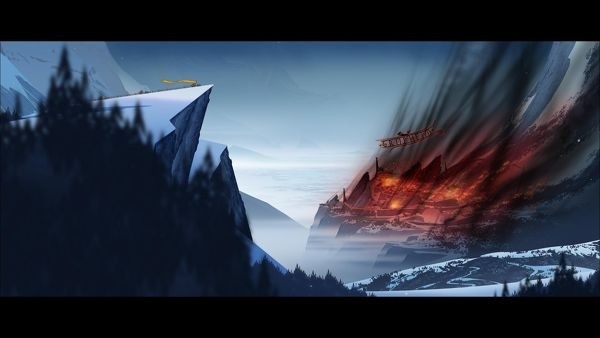 Jesse Tannous: Many games that have been commended for their strong narratives and character development (The Last of Us, Bioshock, Silent Hill) have featured father-daughter relationships. This type of relationship seems extremely important in The Banner Saga with Rook and Alette being the key focuses even in the menu screen. Why did you choose this type of familial relationship as a key focus, and what do you believe makes it so compelling?
Jesse Tannous: Many games that have been commended for their strong narratives and character development (The Last of Us, Bioshock, Silent Hill) have featured father-daughter relationships. This type of relationship seems extremely important in The Banner Saga with Rook and Alette being the key focuses even in the menu screen. Why did you choose this type of familial relationship as a key focus, and what do you believe makes it so compelling?
Drew McGee: The father-daughter relationship pulled at us for a variety of reasons. Topically, it allows us to explore the importance of family versus clan versus humanity. Digging a bit deeper, it gives us views of gender in our Norse-influenced society. And beneath that, there’s the chance to glimpse a father’s knowledge – or lack thereof – of his daughter’s mindset and vice versa. These mysteries (and often, misunderstandings) are a timeless part of the human condition. The games you mentioned give us brief moments to consider empathetic views from various perspectives – powerful stuff that really seems to resonate with audiences on many levels. That said, if The Banner Saga comes close to The Last of Us, Bioshock, or Silent Hill in this regard, we’re just friggin’ lucky.
JT: Given the emphasis of this father-daughter relationship in the game, why did you decide to force players to choose between the lives of Alette or Rook at the end of the game? Didn’t you just destroy one of the most compelling, if not the most compelling, relationships of the game?
DM: While death certainly affects aspects of a relationship (for instance, hugs and conversations become remarkably one-sided), it rarely destroys the entire thing. In the wake of someone dying, there are opportunities for truly compelling growth, reflection, and even destruction. Emotions are either tucked away or worn on the sleeve and decision-making is affected along with the way. Others react to these decisions. Ultimately, the death of a hero should pave the way for greater character development and relationships with those still alive.
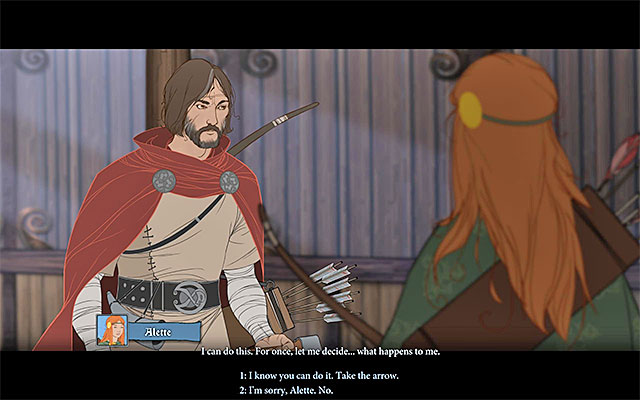
JT: It seemed to be extremely difficult in the game to juggle between providing for the caravan and upgrading your main group of fighters, with purchasing items being nigh impossible. Was this intentional or is this something that will be potentially re-worked for the sequels?
DM: It was intentional, which never means it was necessarily the “right” way to do it. Items in The Banner Saga are tricky on account of the balanced combat system. If too many characters have a chance to hit for double strength, battles are no longer threatening. At the same time, if no character has a chance to equip an item to hit for double strength, the RPG customization aspect is dinged. While we may look into ways of offering a few more chances for items, there’s something fitting in the dire world of The Banner Saga about a small inventory of items which are true boons if you acquire them, but a distinct gamble if it means going without food.
JT: One element of the game that many seemed to take full advantage of was the ability to revert back to old save points in order to modify decisions. While compelling in order to correct what were considered mistakes, it also seemed to make choices feel a little less meaningful. Was this effect noticed by your team during play testing? Has there been any consideration in creating a mode or difficulty setting that does not allow reverting to previous saves?
DM: Originally, the game only had a system of very few and hidden checkpoints. We’re older gamers who remember leaving the NES on all night because we couldn’t get to a save point by bedtime – when dying meant hours of replaying content and anxiety about winning that battle the next time. It’s fun in a damning sort of way, but alas, the outcry for more frequent saving was patched in. While we hear players mention that they went back at times, most of the Let’s Plays we watch forge ahead with comments of, “I can’t believe so-and-so died! I’ll have to try something different next time.” Obviously, we want people talking about the game, discussing their differences in choices, and not seeking out the “right” way to play it, so perhaps a type of “Ironman Mode” will be an option moving forward.
JT: Choice and consequence are obviously a huge part of the game that will be continuous through all three titles. However, will you perhaps hint, at one specific consequence or choice that will have a huge impact on a situation in the next game?
DM: So, you’ve already mentioned one decision that will have a massive impact on your saga moving forward. We’re hesitant to name the decisions that will carry forward because once out there, players tend to start “gaming the system” rather than enjoying the ride. We truly want you to sit back, play, laugh, cry, and worry about whether you could’ve made a better decision – that’s what carrying the Banner is all about.
Leaving much for the imagination in regard to the upcoming titles, Stoic’s The Banner Saga likes to keep us guessing, but that’s really the best part of this expedition.
Jesse is a reporter first who just happens to love video games and enjoys writing video game related articles and interviewing industry professionals.

